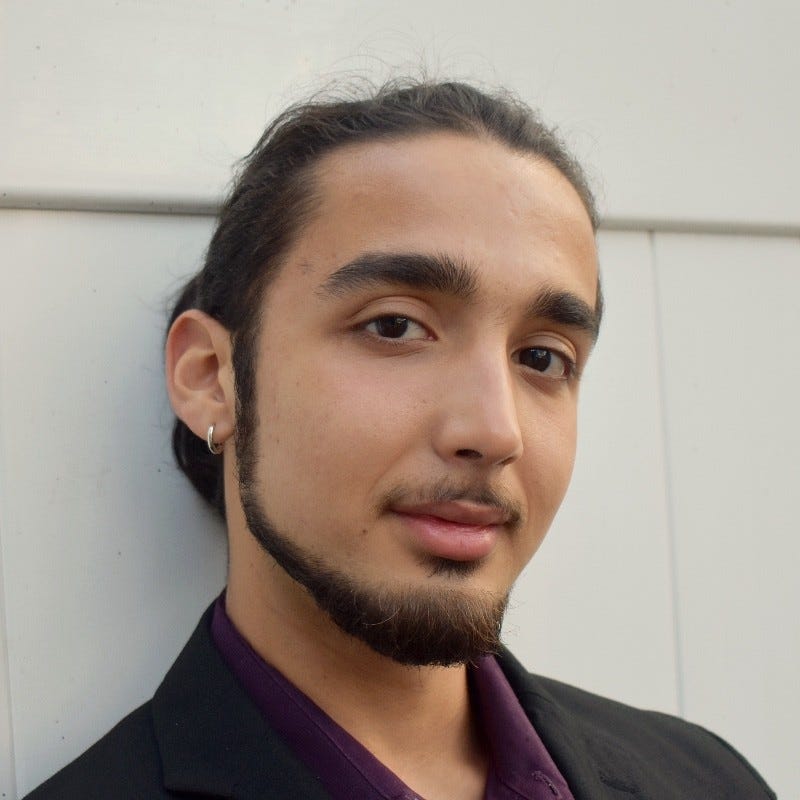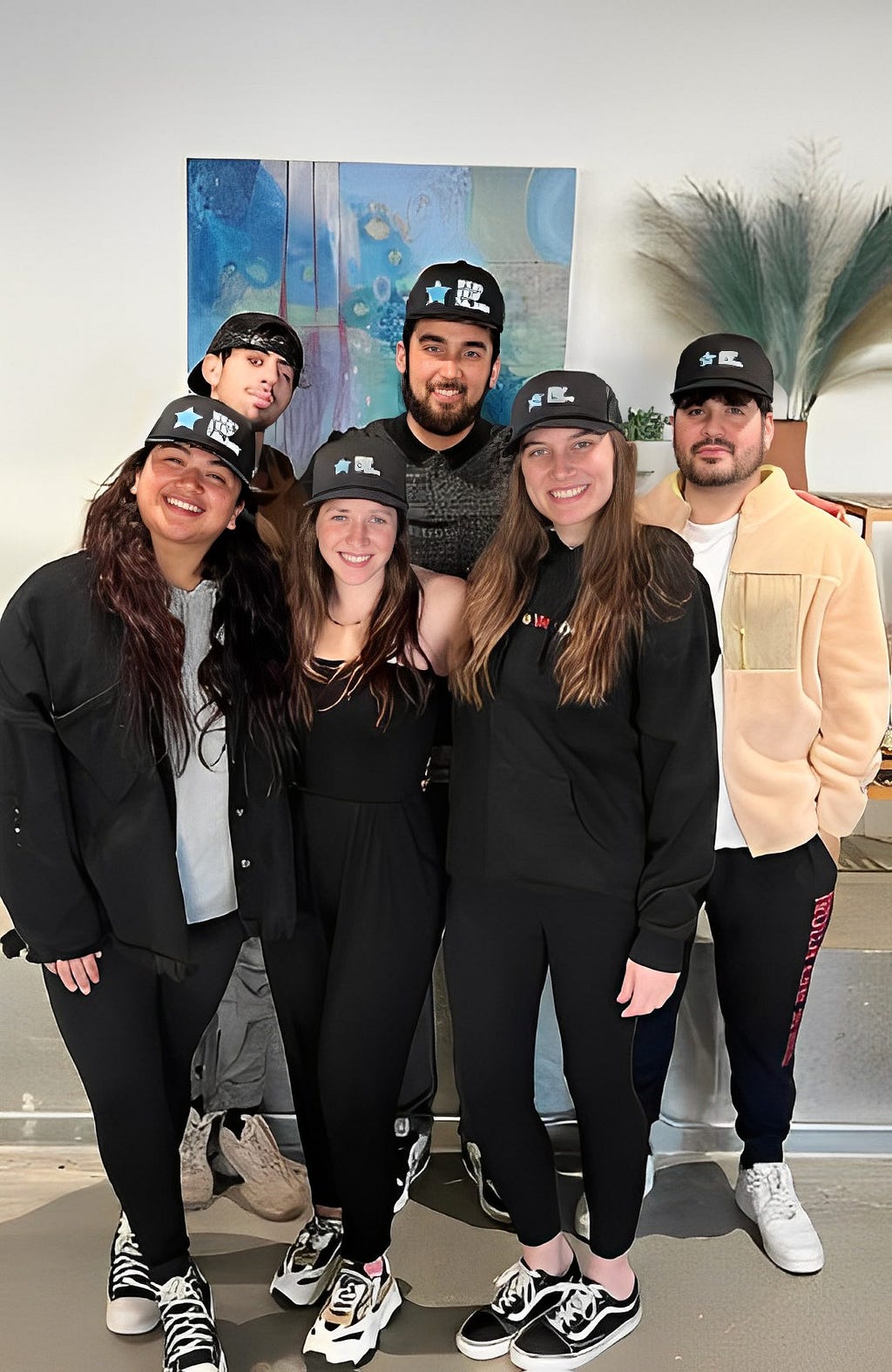How Geoff Rosenthal of Next Step Talent is Helping To Make the Entertainment Industry More Diverse and Representative

Control your extreme emotions. During my early career, I almost got jumped after openly getting furious at someone for not fulfilling their performance requirements at a concert. I learned that there is no reason to let yourself get out of control; it has consequences.
As a part of my series about leaders helping to make the entertainment industry more diverse and representative, I had the distinct pleasure of interviewing Geoff Rosenthal of Next Step Talent.
Geoff Rosenthal is a highly experienced talent manager and strategist who currently holds the position of Head of Talent Strategy and Culture at Next Step Talent, a full service management company and digital brand consulting agency that specializes in long term growth through digital strategy and audience relationship building. With an impressive background, Geoff oversees talent acquisition, development, and retention, playing a pivotal role in the success of the organization. Raised on the South Shore of Massachusetts, Geoff was born to mixed parents of Nicaraguan and Jewish descent. Prior to graduating early and Cum Laude at SUNY Oneonta, Geoff gained invaluable experience working alongside top-level executives at CID Entertainment, Levitate Brand and more. Freelancing at a young age, Geoff managed talent, promoted/coordinated live events, performed extensively as saxophonist, and engaged in visual arts. Geoff’s expertise and leadership have contributed to the growth and success of Next Step Talent, as well as numerous clients, including iKnowAyrel. With an innate passion for music and entertainment, Geoff brings a unique blend of creativity and business acumen to every project he undertakes. To learn more about Next Step Talent, visit https://www.nextsteptalent.co/
Thank you so much for joining us in this interview series! Can you tell us a story about what brought you to this specific career path?
When I was younger, I used to sit in my apartment and wonder why everyone advised so strongly against a career in music when I loved it so much. At 15 years old, a close rapper friend and I decided we would visit every music venue in Boston/Providence via train and convince them to let us on stage. We had no money in our pockets and no music released to the public, but we did have a lot of energy and strong dreams of participating in the music industry. After rushing on stage during a concert at the Middle East Upstairs in Boston, grabbing their microphone, and rapping acapella to an unexpecting crowd, my friend and I made our first connection to a local promoter. He was impressed with our ability to grab the attention of local youth, leading to my first paid music gigs during high school.
Can you share the most interesting story that happened to you since you began your career?
I started playing alto saxophone through the Massachusetts public schools system at 9 years old, and by 2019, I was performing at live events 7+ times a week in college. I stayed consistent, noticing the more that I engaged in practicing saxophone, the more success I saw in my academic and business endeavors too. I quickly transitioned from making the majority of my income playing saxophone to a full career in talent development in 2020. I feel that I can always come back to performing on stage, but I would like to focus on building out the foundations for great creative businesses and communities now while I’m young, so the world can be my oyster later.
Can you share a story about the funniest mistake you made when you were first starting? Can you tell us what lesson you learned from that?
I once went to a celebration for a talent’s accomplishment thinking it was a birthday party. After repeatedly stating “happy birthday” and making a big deal out of it to everyone at the party, I quickly learned I was mistaken. I find moments like this funny and now always make sure I do my research beforehand.
Ok, thank you for all that. Let’s now jump to the main focus of our discussion. Can you describe how you are helping to make popular culture more representative of the US population?
I support entertainment that appeals to the more raw side of human nature and have only signed talent that would typically be described as “different” or “strange.” I think it is impossible to live the picture-perfect way that most celebrities promote. I stay loyal to my unique clients through their difficult moments, even when they’ve had no choice but to publicly pivot with their brand entirely. I understand that human error is completely normal and I strive to put my efforts behind people who aren’t afraid to show the less flattering sides of themselves to the public.
Can you tell us a story about a particular individual who was impacted by the work you are doing?
I recently worked on a campaign with iKnowAyrel and YouTube for Black History Month. Ayrel was featured on the YouTube homepage and was a standout member of their Black Voices Class of 2023. Ayrel makes raw “on the street” content where he catches cheaters on camera, so this achievement has helped the public to respect Ayrel for the hard worker he truly is.
As an insider, this might be obvious to you, but I think it’s instructive to articulate this for the public who might not have the same inside knowledge. Can you share three reasons with our readers about why it’s really important to have diversity represented in Entertainment and its potential effects on our culture?
I come from a mixed family, so I always felt like I had no relatable figures to look up to in the media growing up. This taught me the importance of having appropriate role models. Additionally, I feel that diversity in entertainment shows that people of all cultures can be successful. Lastly, I think that entertainment often pushes cultures into boxes, so it’s vital to highlight the different varieties of people that exist in every corner of the country to avoid ignorance.
Can you recommend three things the community/society/the industry can do to help address the root of the diversity issues in the entertainment business?
Focus on highlighting your unique background & story so you can stand out from others in a positive way
Don’t create narratives that play outside your role as an entertainer
Collaborate with all types of people, don’t be forced into one “demographic”
How do you define “Leadership”? Can you explain what you mean or give an example?
Leadership is the innate ability to give others direction where there is none. For example, when I was helping to raise my younger brother, he consistently had health scares that could have been fatal. I would have been a bad older brother and leader if I had allowed him to think that death was around the corner. Instead, I brought him along with me for almost every opportunity I received growing up, so he could see the other sides of life and find his path. Nowadays, he is a strong young man and those years are in the past.

What are your “5 things I wish someone told me when I first started” and why? Please share a story or example for each.
Control your extreme emotions
During my early career, I almost got jumped after openly getting furious at someone for not fulfilling their performance requirements at a concert. I learned that there is no reason to let yourself get out of control; it has consequences.
Lean on the friends that care about you
When a friend asks how you are feeling, if you are not feeling good, let them know. I have accidentally made people think that I am mad at them when I am really just having a bad day.
Embrace your mistakes
I used to get really hung up over small mistakes, even when it was just a typo. Oddly enough, once I started accepting and sharing relatable failures or mistakes with other people in good measure, I began to make more meaningful friendships and decisions.
Have a morning and night routine!
It’s great to set a list of tasks to do every day when you wake up and every night when you go to bed. No matter how bad a day might seem, if you can hold yourself to these routines, you can always get back on track.
Work out!
Whenever I get overwhelmed, I have learned to just take a break and hit the treadmill or do some push ups. It always helps me to reset and evaluate my thoughts.
You are a person of enormous influence. If you could inspire a movement that would bring the most amount of good to the most amount of people, what would that be? You never know what your idea can trigger. 🙂
I would inspire everyone to create 3 personal long-term goals for themselves and track them with small accomplishments every day. For example, if your goal is to go sober, make a tally sheet and mark down each day you stay sober. These types of challenges keep us accountable for personal growth and build excitement for a positive change in life.
Can you please give us your favorite “Life Lesson Quote”? Can you share how that was relevant to you in your life?
My good friend and saxophone mentor, Charlie Vatalaro, once told me to allow “my intellect to meet my intuition.” I never forgot this and always remind myself that it is equally important to trust both your heart and brain when making major decisions.
Is there a person in the world, or in the US whom you would love to have a private breakfast or lunch with, and why? He or she might just see this, especially if we tag them. 🙂
I would love to have breakfast with Jocko Willink. I appreciate his realistic and harsh outlook coming from his experiences as a leader in the Navy SEALs. His smooth transition into being a humble public figure, author, podcast host and entrepreneur inspires me to say the least.
How can our readers follow you on social media?
@Nextsteptalent on Instagram, Linkedin, and Facebook, and my instagram is @managing.geoff.
This was very meaningful, thank you so much!
How Geoff Rosenthal of Next Step Talent is Helping To Make the Entertainment Industry More Diverse… was originally published in Authority Magazine on Medium, where people are continuing the conversation by highlighting and responding to this story.
